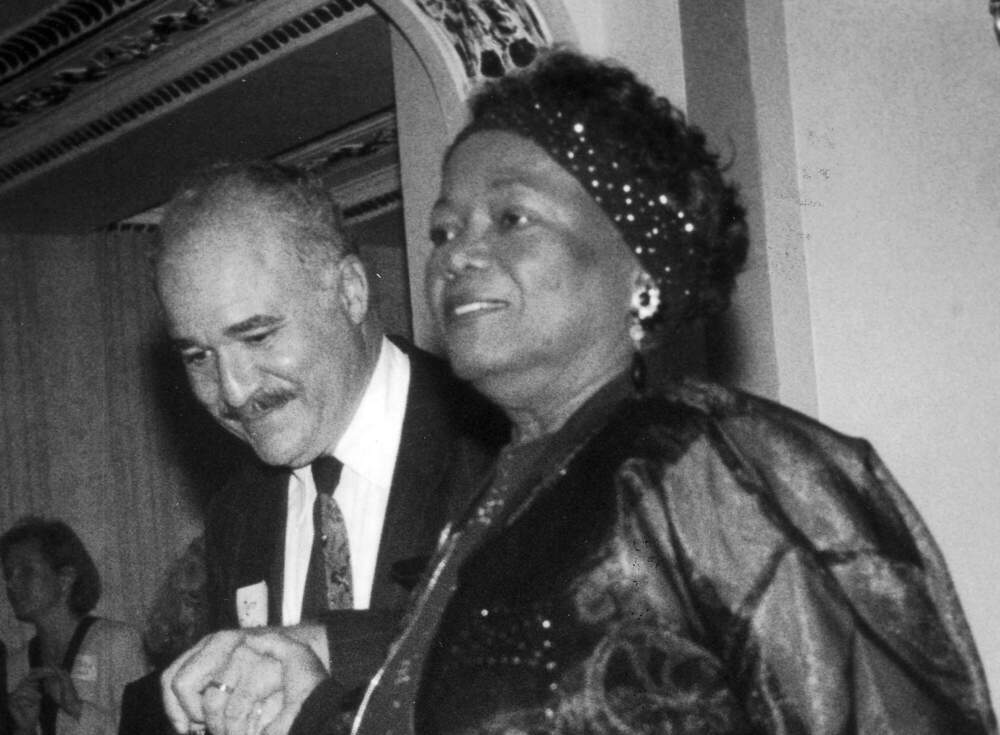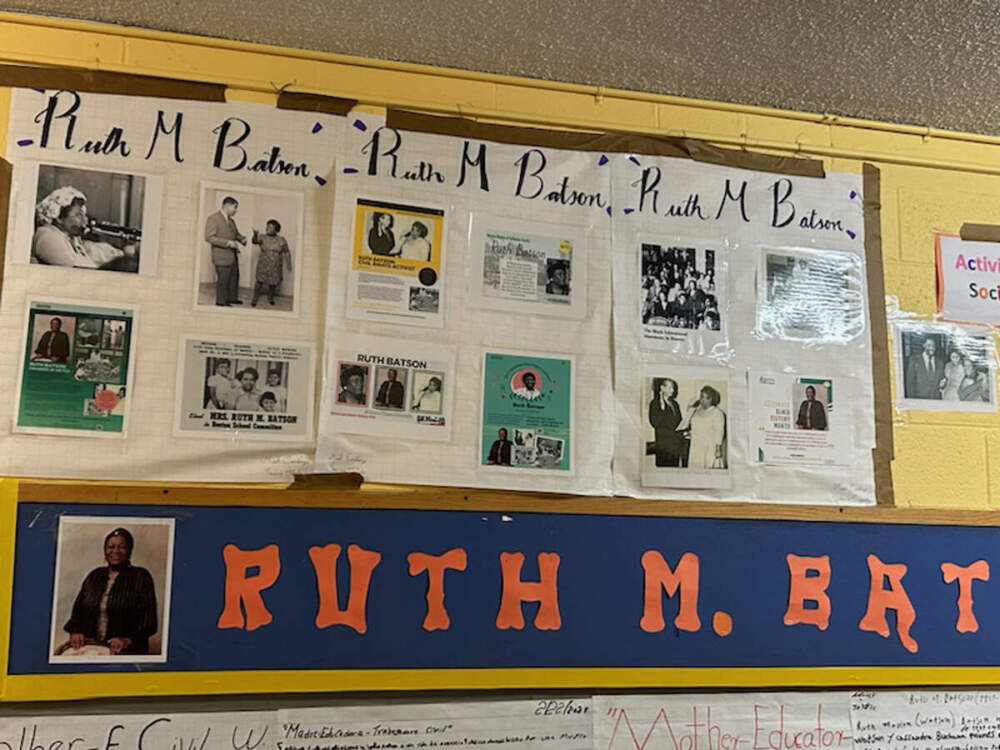Advertisement
Boston set to rename a school for Ruth Batson, a force for equitable education

For the second time in two years, Boston will rename one of its public schools in tribute to a legendary local activist.
Following a vote by the Boston School Committee Wednesday evening, the Boston Community Leadership Academy/McCormack School — which runs from grade 7 to 12 after a 2019 merger — will be renamed the Ruth Batson Academy, after the Roxbury-born Ruth Batson.
Top district officials have already given their blessing to the proposed change.
Before her death in 2003, Batson was a driving force behind the desegregation of city schools, the first leader of the voluntary busing program known as METCO, and a tireless agitator for equity in the region.
At a March 27 meeting of the school committee, chairwoman Jeri Robinson said she knew Batson personally, admiring her as an advocate for, in particular, the district’s Black students during a period of harsh inequality.
“We couldn’t ask for a more important person [in] the history of Boston, and Boston Public Schools, for a school to be named after,” Robinson said.
Batson would be just the latest in her generation of Black Boston activists to be honored by a BPS school. The district’s three McKinley schools were rededicated to Mel King — a Batson ally — last year, while the John D. O’Bryant School in Roxbury was named for the first Black member of the city’s school committee in 1994.
But some are pressing the district to not just honor Batson, but to carry on her life's work.
Nearly five years after its merger was approved, the BCLA/McCormack is still awaiting a long-promised move to a common site on the McCormack’s current campus on Columbia Point in Dorchester. After pandemic-related disruptions, that move is finally expected to be complete next year.
BCLA/McCormack School leaders voted unanimously in favor of the name change last June after discussions inside the school community. Before and since that vote, students at the school have been learning about Batson’s legacy.
Advertisement
Gabriel Verdejo has taught history at the BCLA/McCormack’s program for students whose formal education was interrupted, often by conflict or migration.
During an "acceleration academy" — enrichment learning over February vacation — Verdejo worked with his students, mainly Central and South American students, to learn about Batson.
After four days of study, he said, they felt a deep kinship with the activist, who died in 2003.
“ ‘She sounds like my grandma, she sound like one of my aunts — [who are] always arguing every time something goes wrong with my school or something goes wrong with us,’ “ Verdejo said. “Yes! Because they want what’s best for you.”

A 1939 graduate of the Girls' Latin School (what is today Boston Latin Academy), Batson made history as the first Black woman to serve on the Democratic National Committee and the first woman voted in as president of the NAACP's regional conference for New England.
Starting in the 1960s, Batson was pushing to desegregate schools in Boston — not as an end in itself, activist and retired educator Edith Bazile said in an interview, but as a way to expand opportunity in the city’s underfunded and overlooked Black precincts.
Batson confronted the fiery backlash to court-ordered desegregation with disappointment: in a 1978 interview with WGBH, she described her hometown as a “violent and racist city.”
The school name change will be marked with a ceremony in the months ahead, on or around the 50th anniversary of the 1974 federal court ruling that ordered desegregation busing in Boston.
Bazile, the executive director of Black Advocates for Education Excellence, said naming schools for Batson and Mel King is “an exciting concept” — but one that should be accompanied by concrete reforms to further their life’s work.
“Ruth Batson was about action,” Bazile said, adding that Batson’s struggle to combat “policies that continue to racially isolate students into underperforming and under-resourced schools" is "something that we are still fighting for.”
